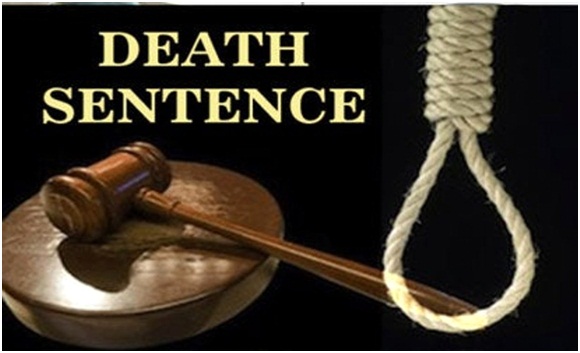IMF on fuel subsidy removal
By Afolabi Aribigbola
The recent recommendation of the International Monetary Fund (IMF) to Nigeria to fully remove fuel subsidies early in 2022 as well as recent increase in electricity tariff have become a source of concern to many Nigerians including this columnist. This is coming amid skyrocketing inflation in Nigeria. It is coming at a time that the prices of all consumer goods and services are rising beyond the reach of the common man.
It is common knowledge that the cost of stable foods like garri, rice yam and domestic products such as kerosene, cooking gas and a host of others are on the rise. Yet the income of the people is not going up. Of course, many Nigerians are unemployed and therefore cannot fend for themselves but must depend on the few working class whose income is inadequate, or not paid on time. Some even receive their income in fractions. These scenarios made it quite unbelievable to hear of the urge from IMF to the Nigerian government to increase fuel and electricity tariffs.
The issue of fuel and electricity prices increase has become a recurring intractable one in Nigeria. It has been undertaken many times with dare consequences on the people and economy of Nigeria. With hindsight, it has always resulted in astronomical rise in prices of all goods and services. Therefore, the proposed fuel price increase and the increase in electricity tariff will not be an exception. It will cause great instability and economic crisis in the country. The country cannot avoid any form of crisis in addition to the one it is facing in terms of huge insecurity and shortages of food as well as lack of essential basic services.
The current issues become more pressing in the sense that there is no third world country that had thrived on the advice or policy recommendations of IMF. Their economic recommendations have always pushed countries into further crisis and debt. Again, these are bodies that have classified Nigeria as the world poverty headquarters. Their present advice or suggestions are based on the reality of Nigeria’s situation in terms of the poor living conditions of the people. The truth is that at present, many Nigerian are dying of hunger, starvation , lack and want as well as food insecurity which manifest everywhere. Indeed, the consequences of the proposed fuel increases are wide and far reaching and could have dangerous outcomes that would negatively impact the economy and living conditions of Nigerians.
In addition, any increase in fuel price will further put the Nigerian economy that is in comatose into deeper crisis. Suffice it to say that it would generally trigger huge crisis and inflict great pains on the common Nigerians beyond what they are experiencing at the moment. It would result in reducing the quality of living of the common man that are always at the receiving end of harsh socio-economic decisions.
It will result in transport fare increases. The increase in transport fare will be astronomical and will in turn affect everything else in the country including school fees, house rents, and food, among others. This is because the cost of goods and services will skyrocket beyond the reach of majority of Nigerians. Transportation cost will go up that will be transferred into the cost of goods and services.
The proposed increase has the capacity to limit production that is at its lowest level and closure of small-scale industries that are in inadequate in all parts of the country. The small-scale industries that are necessary for national growth and development may go into extinction thereby forcing more Nigerians into the employment market. In other words, it has the potentials to kill the struggling small-scale enterprises in the country. Also, it could reenact a countrywide demonstration by all groups as experienced in the country in 2012. Nigeria should avoid such crisis at this period when things are really bad.
Of course, the reason for such a harsh advice by IMF to Nigeria is unclear to me anyway. Why the call for removal of subsidies at these challenging times in the country? Afterall, there is no any society in the world without one form of subsidies or the other. In the United States of America for example, agricultural inputs and food products are heavily subsidised. In most parts of Europe, several services including housing, transport, health education enjoy one form of support or the other.
Why I am really bothered is that they did not consider the plight of Nigerians and the fact that many Nigerians still lack the basic amenities and facilities that make living conducive, yet they seek to unleash more hardships and pains on the people.
In the more prosperous countries of Europe and America, efforts are constantly made to improve the quality of life of people and standard of living. The reverse seems to be the case in Nigeria. Is IMF encouraging the government to remove subsidies so that their friends in government will be able to enrich themselves further corruptibly so that they can have more to ferry to western countries as usual.?
It is an Irony of event that many Nigerians including some Local Governments do not have electricity for years. Unemployment is high and Nigerians are without jobs and acceptable means of living, yet this is not significant for the attention of IMF and their cohorts.
This did not interest them but to increase prices that will invariably impoverish the downtrodden people the more. It is quite unfortunate that IMF is impressing it on the Nigeria Government to increase fuel price, the only commodity that service all Nigerians whether poor or rich, whether young and old and whether in the villages or towns.
It is unbelievable that the same organisations that declared Nigeria as the poverty capital of the world are the one calling on the government to increase fuel and electricity tariff knowing full well that it is the poor that will suffer the increase. The rich will benefit by transferring additional cost to the mass of the people that have no choice but to cope smiling and suffering in abject poverty.
Of course, in better climes, as inflation occurs and price of things go up, governments and employers of labour adjust salaries that are commensurate to the increases. The same cannot be said of Nigeria. The last national wage increases in Nigeria took five years negotiations including several workers strike before agreement could be reached. And after agreement, it took many more years for implementation. Something that should be done in a few days by agencies created for it.
If the government as we are made to believe exists to serve the people, if their welfare and interest is paramount to the government, the best thing to do is for the government not to follow the advice of IMF and other bodies that are pushing for increases in basic services in the country. The poor majority of Nigeria will not be able to cope with the present income levels and high poverty rate in the country.
Then, where do go from here? It is to look inwards for homegrown policies and programmes to propel socio-economic development of Nigeria. At this point in time, Nigeria needs to retain fuel subsidies and reverse the increase in electricity tariff. Nigerians cannot cope with the proposed increase at the current regime of income. As indicated earlier, prices of all essential services revolve around fuel.
Urgent efforts must be made to refine our own fuel. Corruption that is adding to the cost of fuel distribution must also be eliminated. The government of Nigeria must listen to her people instead of outsiders that have no stake in Nigeria except that of profit maximization. Times are hard and the government should not be seen to add more pains to the suffering of the people. Fuel price should not be increased for now.










